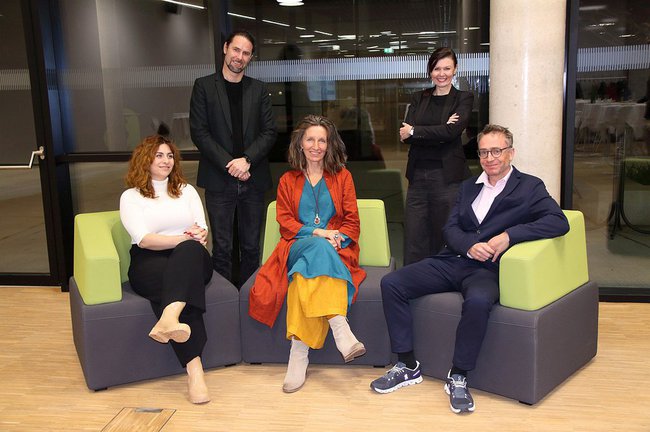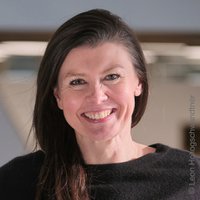News on Sustainability Reporting
A Report on the Specialist Conference i2s Future Lab of the Institute for Innovation Systems (i2s) at the St. Pölten UAS

The i2s Future Lab of the St. Pölten UAS’ Institute for Innovation Systems (i2s) on 8 November 2022 was dedicated to “Sustainability Reporting – von der Pflicht zur Kür” (from compulsory to freestyle) and took a look at the future of sustainability reporting in Austria.
New Standard in Corporate Reporting
With the EU’s Corporate Sustainability Reporting Directive (CSRD), approximately 2,000 Austrian companies will have to submit sustainability reports soon. By 2025, this report will be mandatory standard for all large enterprises; and from 2026, SMEs will have to create reports as well.
Within the framework of the second i2s Future Lab, the Institute for Innovation Systems of the St. Pölten UAS therefore addressed the topic “Sustainability Reporting – von der Pflicht zur Kür” and gazed into the future of sustainability reporting in Austria. The event showed what companies can learn from pioneers in the field, how SMEs can optimally prepare for the new reporting standards, which qualifications staff members will need for the standards’ adequate implementation in future, and which role digitalisation plays in this context.
The conference featured Doris Raßhofer (company spokesperson, gugler* Kommunikationshaus Melk), Martin Weishäupl (managing associate, brainbows informationsmanagement gmbh), and Eva Milgotin (Sustainability Reporting, Semperit AG).
Focusing on the Essentials and Bringing the Threads together
“The good news: Sustainability reporting will become mandatory for all large enterprises in Europe in the future. The bad news: Things will get complicated. This means that despite all provisions, it will be important to focus on the essentials and on the core business”, explains Weishäupl.
“The European Green Deal is an endeavour of unprecedented scale that requires international collaboration and coordination between, and full commitment of the different stakeholders. Therefore, it will be an essential communicative task to bring all threads together”, says Milgotin.
Turning Sustainability into Culture
“We are in favour of the reporting obligation if it means that the money flows will be redirected and non-sustainability will become expensive in the long run. For now, however, the motto is: Let’s do it! We should invest all our strength and resources into the implementation of climate measures instead of reporting regulations. Even a good sustainability report does not make a sustainable company. It is only when sustainability becomes practised culture and a value upheld by all staff members that an organisation becomes authentic, consistent, and thus credible”, explains Raßhofer.
New Framework Conditions
“The Corporate Sustainability Reporting Directive does, however, change the framework conditions for sustainability reporting as well – the implementation of a new standard, the development of an integrated and electronic report, and the mandatory inspection by auditors will be a challenge not only for companies”, says event host Monika Kovarova-Simecek, Academic Director of the master degree programme Digital Business Communications at the St. Pölten UAS.
Institute for Ecological and Digital Change
“Our Institute for Innovation Systems has set itself the task of accompanying all parties affected by digitalisation and ecologisation throughout the upcoming transformation processes and to support them with its expertise in the areas of green & digital strategies, digital business & data economy, data-driven marketing & customer experience, and financial communications”, emphasises Head of Institute Susanne Roiser from the St. Pölten UAS.
“The i2s Future Lab hosted by the Institute for Innovation Systems sees itself as a network and discussion platform for experts and opinion leaders – at the interface of ecologisation and digitalisation”, adds Tassilo Pellegrini who heads the institute together with Susanne Roiser.
The conference took place in collaboration with the Digital Innovation Hub Work (DIH Work) and the Digital Makers Hub. Both hubs receive funding from the BMDW within the framework of the programme “Digital Innovation Hub in Austria”.

FH-Prof. Mag. Monika Kovarova-Simecek
Deputy Chairperson of the University of Applied Sciences Board Academic Director Digital Business Communications (MA) Academic Director Digital Management and Sustainability (MA) Deputy Academic Director Management and Digital Business (BA) Department of Digital Business and Innovation
FH-Prof. Mag. Dr. Tassilo Pellegrini
Head of Research InstituteInstitute for Innovation Systems Department of Digital Business and Innovation

Mag. Dr. Susanne Roiser , MA
Head of Department Head of Research InstituteInstitute for Innovation Systems Deputy Academic Director Digital Management and Sustainability (MA) Department of Digital Business and Innovation